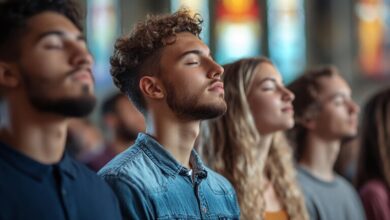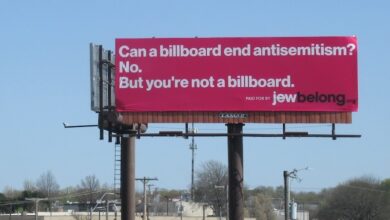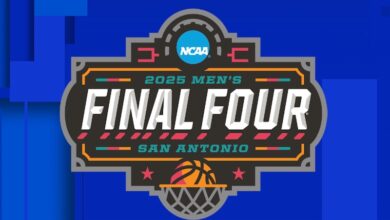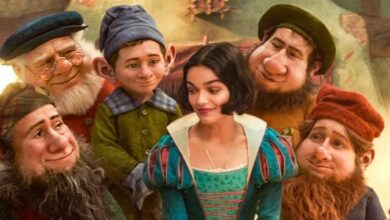American sports, role models and culture
Nearly 30 years ago, in a 1993 Nike commercial, professional basketball legend Charles Barkley fired the first shot at the “role model” concept popularized by Columbia University sociologist Robert K. Merton in the aftermath of the 1960s counterculture movement. “I am not a role model,” Barkley proclaimed in the half-minute spot. “I’m not paid to be a role model. I’m paid to wreak havoc on the basketball court. Parents should be role models. Just because I dunk a basketball doesn’t mean I should raise your kids.”

Barkley’s words landed with a force every bit the equal of former NFL quarterback Colin Kaepernick’s National Anthem knee 23 years later. Former Vice President Dan Quayle defended Barkley, while Barkley’s fellow NBA superstar Karl Malone criticized him in Sports Illustrated. Leading news magazines, including Time and Newsweek, published articles exploring the controversy. Newspaper columnists from coast to coast—on and off the sports pages—also weighed in. The topic still sparks debate today.
WATCH: Jason’s address in the video below
Of the many phrases and concepts Merton coined—including “self-fulfilling prophecy” and “unintended consequences”—“role model” has had the most impact. On the surface, the argument that young people tend to model their behavior after high-profile, successful adults is harmless. However, in retrospect, the elevation of athletes and other celebrities as primary figures in the formation of behavioral norms for young people helped create the conditions that are powering the destructive Black Lives Matter movement today.
Merton’s role model concept undercuts the importance of parents and nuclear families. That was the point of Barkley’s criticism. Feminists and other progressive critics of America’s “patriarchal” society—including the Black Lives Matter movement, whose Marxist-influenced statement of purpose opposes “the Western-prescribed nuclear family structure”—have used Merton’s concept to great effect. Muhammad Ali, Pete Rose, Farrah Fawcett, Barbara Streisand, Mick Jagger, Marvin Gaye, and Burt Reynolds infringed on territory primarily reserved for mom, dad, aunts, uncles, grandparents, and teachers.
Technology has helped advance the process, diminishing the influence of traditional authority figures and strengthening the reach of celebrities. Kids shut their bedroom doors, turn on their televisions, laptops, and game consoles, plug in earbuds, open social media apps, and disappear into a world far removed from mom and dad. With a mere push of a button they tune out the worldview of their families and tune in the worldview of athlete LeBron James, actress Lena Dunham, rapper Snoop Dogg, social media race-baiter Shaun King, and others like them.
On top of all this, we now see America’s enemies, particularly China, using these modern role models to promote racial division and destabilize our country—with those on the political Left as their accomplices. Today, they have coalesced around the Black Lives Matter movement to push America toward a level of racial dysfunction and animus not experienced since the Civil War.
It’s fitting that Charles Barkley fired the first shot against this trend, because American sports have become the Gettysburg of what some have called our “cold civil war.” And if China and the Left complete their radicalization of sports, our nation may never recover.
Sport has the power to change the world. It has the power to inspire. It has the power to unite people in a way that little else does. It speaks to youth in a language they understand. Sport can create hope, where once there was only despair. It is more powerful than governments in breaking down racial barriers. It laughs in the face of all types of discrimination.
Nelson Mandela spoke those words in an effort to heal the country he came to lead after spending a quarter century incarcerated for opposing apartheid. Mandela embraced sports’ power to bridge racial divides, looking on athletic competition as a kind of antibiotic for racial animus and discrimination. South Africa’s victory in the 1995 Rugby World Cup and Mandela’s presentation of the Webb Ellis Cup to team captain Francois Pienaar stand as an iconic symbol of unity in post-apartheid South Africa. Clint Eastwood directed a movie, Invictus, starring Morgan Freeman and Matt Damon, that memorialized the importance of the moment. It bears re-watching today.
Since sprinter Jesse Owens won four gold medals at the 1936 Berlin Olympics and boxer Joe Louis scored a first-round knockout over German heavyweight Max Schmeling in 1938, sports have served as a powerful racial unifier in America as well. The victories earned by Owens and Louis punctured Hitler’s Aryan superiority myth, unified black and white Americans in celebration, and established Owens and Louis as this country’s first black national heroes.
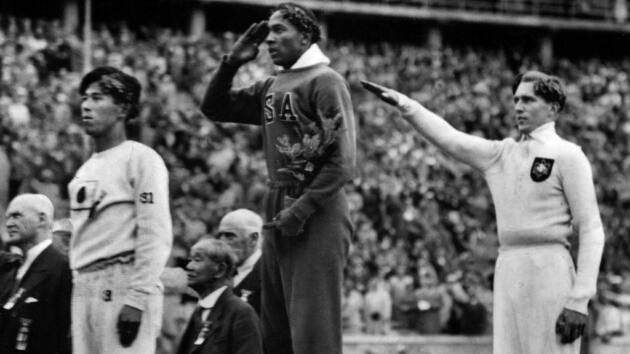
Owens and Louis laid the foundation for Brooklyn Dodgers General Manager Branch Rickey’s partnership with Jackie Robinson to integrate our national pastime, Major League Baseball, a decade later. Robinson’s successful integration of baseball, in turn, inspired Dr. Martin Luther King Jr., Rosa Parks, and the Civil Rights Movement of the 1950s.
Indeed, Barack Obama, America’s first black president—the world’s first black leader of a predominantly white country—credited Robinson’s career for his own political rise. “There’s a direct line between Jackie Robinson and me standing here,” Obama said in January 2017, while hosting the world champion Chicago Cubs at the White House. He continued:
There’s a direct line between people loving Ernie Banks, and then the city being able to come together and work together in one spirit. . . . Sometimes it’s just a matter of us being able to escape and relax from the difficulties of our days, but sometimes it also speaks to something better in us. And when you see this group of folks of different shades and different backgrounds, and coming from different communities and neighborhoods all across the country, and then playing as one team and playing the right way, and celebrating each other and being joyous in that, that tells us a little something about what America is and what America can be.
Yes, America is a shining example of sports’ transformative power. The games we play, the games at the center of our social behavior, combine with our founding principles to enhance the American experience. America’s enemies know this, which is why the culture war has moved to our arenas and stadiums. Sports are now in the same crosshairs as our Founding Fathers, under attack for past racial sins and unappreciated for their vital role in cultivating racial unity. Thomas Jefferson owned slaves, but by writing the Declaration of Independence he made the emancipation of slaves inevitable. American sports were once segregated, but no American industry can match sports’ empowerment of black men.
The black-player-dominated National Football League is the most powerful force in American popular culture. It provides the number one television show on five different networks—CBS, FOX, NBC, ESPN, and the NFL Network. In this era of have-it-your-way TV, where consumers record and watch shows when they want while fast-forwarding through advertisements, only live sporting events can be consistently counted on to deliver audiences that sit through commercials.
But while American sports have never been more influential, they’ve also never been more vulnerable to foreign influence. Their partnership with global brands and their desire to build global audiences have given foreign countries a pathway to manipulate American sports and culture.
Look at how China, with its 1.4 billion consumers, rules the National Basketball Association and its de facto parent company, Nike, the same way it rules Hollywood. Access to China’s consumers and Asia’s cheap labor (even sometimes slave labor) is the key to Nike’s economic growth. The Portland-based shoe and apparel manufacturer generates $40 billion a year in revenue. Its global reach, agenda, and revenue streams dictate the strategy of the $8-billion-a-year NBA. Many are unaware that Nike, and not the NBA, controls basketball. One could make a fair argument that the NBA is nothing more than the in-house marketing department of Nike.
Both Nike and the NBA kowtow to China, which explains their silence on the horrific human rights abuses inside China and the suppression of Hong Kong freedom fighters by China’s communist government. More important, Nike and the NBA’s China agenda helps explain why Nike pitchmen LeBron James and Colin Kaepernick enthusiastically smear the United States as inherently racist and evil. From Joseph Stalin to Fidel Castro to our own time, the communists’ favorite propaganda tactic has been to paint the West, and the U.S. in particular, as racist.
The militant social justice messaging of James and Kaepernick serves the interests of not only the Chinese Communist Party and globalist corporations like Nike, but also our political Left. Kaepernick’s National Anthem defiance in 2016 gave the Left an opportunity to politicize football, America’s new national pastime, and force it into the kind of “progressive” posturing already commonplace in the NBA and Hollywood. Arrogance, lack of foresight, and the advice of an inner circle that included former Clinton administration press secretary Joe Lockhart as the NFL’s vice president of communications, explain commissioner Roger Goodell’s laissez-faire approach to Kaepernick’s protest. Underestimating the determination of the Left and the power of social media to intimidate corporate America, Goodell and the NFL’s TV partners wrongly thought that the Kaepernick controversy would fade over time.
Instead, four years after Kaepernick first knelt, the Leftist mob has forced the National Football League, Major League Baseball, the National Hockey League, and the National Basketball Association to take their own knees and pay homage to the dishonest Black Lives Matter narrative on police brutality. The NFL plans to paint social justice messages across its end zones this season and to allow players to wear helmet decals with the names of alleged police victims. The San Francisco 49ers fly a BLM flag next to an American flag at Levi’s Stadium. MLB opened its COVID-shortened season with “BLM” carved into pitcher’s mounds, and the Boston Red Sox put up a 254-foot BLM billboard outside Fenway Park. NHL players are now regularly kneeling during the National Anthem. The NBA’s basketball bubble at Disney World is a virtual shrine to BLM: “Black Lives Matter” is painted on the court, players wear social justice messages on the back of their jerseys, and it’s major news when a player stands during the National Anthem.
The entire American sports world—a culture that traditionally celebrates victors, meritocracy, colorblindness, and patriotism—has suddenly immersed itself in black victimization and left-wing radicalism. This immersion threatens to do permanent damage to American culture as a whole. It has certainly undermined national pride. A country that no longer believes in its founding ideals cannot prosper and survive.
If our sports stadiums and arenas have become the Gettysburg of the culture war, Lebron James and Colin Kaepernick are playing the roles of Robert E. Lee and Stonewall Jackson, fighting to divide the nation even further than it is. The mainstream media is only half right in casting them as modern-day equivalents of Muhammad Ali. Ali’s religious sect, the Nation of Islam, was certainly divisive: it championed black secession. But unlike the BLM movement, it also rejected victimhood. Its founder Elijah Muhammad and its spokesman Malcolm X promoted bootstrap self-reliance and were disdainful of liberal politics. “The worst enemy that the Negro [has],” said Malcolm X,
is this white man that runs around here drooling at the mouth professing to love Negros and calling himself a liberal. It is following these white liberals that has perpetuated problems that Negros have. If the Negro wasn’t taken, tricked or deceived by the white liberal, then Negros would get together and solve our own problems. I only cite these things to show you that in America, the history of the white liberal has been nothing but a series of trickery designed to make Negros think that the white liberal was going to solve our problems.
Pro-BLM athletes today have moved beyond the idea of a role model that was debated in 1993—the idea of modeling behavior to be imitated, such as self-reliance, hard work, responsibility, and good parenthood. Through the power of social media, to which they are addicted, these modern role models exert influence by promoting commercial products and political causes. In the case of NBA athletes like Lebron James, this means turning their backs not only on the oppressed people of China and Hong Kong, but also on the poor and underprivileged in America among whom so many of these wealthy athletes grew up, and who they now condemn to victimhood and dependency with their political activism.
Charles Barkley was right 30 years ago. Parents, not athletes, should be role models. Today the situation is even worse, with sports further dividing an already dangerously divided nation, rather than providing the unifying and even healing force Nelson Mandela described. Predictably, there are now calls to boycott sports, and it seems inevitable that the TV ratings of the pro sports leagues will decline. This is unlikely to matter, however, to the suddenly-woke billionaire team owners and their handpicked commissioners.
As fans, we can only hope and pray that these feckless leaders will reconsider their embrace of the BLM cult—a necessary first step to returning American sports to what it has been in the past: a force for unity and a model of a diverse and colorblind meritocracy.
–Jason Whitlock. Jason is a sports columnist for Outkick.com, a TV and radio host, and a podcaster. A graduate of Ball State University, where he was a football letterman, he worked as a sportswriter at The Kansas City Star from 1994 to 2010. He has also worked for ESPN, AOL Sports, and Fox Sports. In 2007, he became the first sportswriter to win the Scripps Howard National Journalism Award for Commentary. He founded ESPN’s “The Undefeated” website and helped create and host “Speak for Yourself” on FOX Sports 1.
This essay is adapted from a Hillsdale College online lecture delivered in Nashville, Tennessee, on August 19, 2020.
Reprinted with permission of Imprimis, a publication of Hillsdale College.




